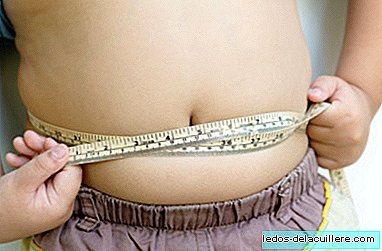
Childhood obesity is a problem of alarming dimensions in many countries and is a serious problem that is urgently addressed from various fronts. Even the World Health Organization has recently established a Commission to end childhood obesity, aimed at examining and providing clues to address this epidemic.
And, although it is known that much can be done against the obesity of children from the family, from school, from health, the community ... there are not always enough resources or information or concern to make effective Many measures and the problem continues to grow at an alarming rate.
Analyzing the keys to ending obesity that we review below, set by the WHO, it seems that everything remains in the hands of governments, those responsible for making laws and policies. But if we do not force "from below", these measures are probably not heard, let go, underestimated to the detriment of the population (and often for the benefit of large multinational food).
In addition, as responsible parents we must inform ourselves about what is best for our children and for the whole family, so that we establish healthy habits that curb obesity and overweight.
It is in the report entitled "End childhood obesity", where WHO has developed a set of recommendations to effectively combat childhood obesity and adolescence in different contexts after consulting with more than 100 Member States. They are the following:

Six keys against childhood obesity
Apply comprehensive programs that promote healthy food intake and reduce the intake of unhealthy foods and sugary drinks among children and adolescents. Information accessible to society as a whole, taxes on sugary drinks, establishing easy to interpret labels… are some of the measures in this first point.
Apply comprehensive programs that promote physical activity and reduce sedentary behavior in children and adolescents. For example, ensuring that schools and public spaces have facilities where all children (including children with disabilities) can participate in physical activities during recess.
Integrate and strengthen the guidelines for the prevention of noncommunicable diseases with current guidelines for pregestational and prenatal care to reduce the risk of childhood obesity. Because the health of our children begins even before pregnancy, and it is convenient to control hyperglycemia and hypertension during pregnancy, weight gain so that it is adequate ...
Offer guidance and support to establishment of a healthy diet and of sleep patterns and physical activity during early childhood so that children grow properly and acquire healthy habits. Control the marketing of artificial milk, promote the advantages of breastfeeding, ensure that all maternity services fully practice the Ten steps towards a happy natural breastfeeding ... are included in this section.
Apply comprehensive programs that promote healthy school environments, basic knowledge in health and nutrition and physical activity in children and adolescents of school age. Here it would be necessary to establish norms for the foods that are offered or sold in the schools, so that they fulfill the guidelines on a healthy nutrition and eliminate in school surroundings the supply or the sale of unhealthy foods.
To offer children and young people with obesity services for the control of body weight that gather diverse components and focus on the family and on the modification of the type of life. That is, to prepare and implement adequate services for weight control as part of universal health coverage, in charge of teams composed of several professionals with adequate training and resources.
As we see, these are actions from different areas and where it seems that the family does not have much to say. But, with our responsibility and the search for information as parents in the case of lack of it, we can have a very positive role in the health of children. We can also, in another direction, require the rulers to consider and support these keys.
Hopefully these are increasingly present six keys to ending childhood obesity and in this way our children, the children of our children and the following generations grow and live healthier.












